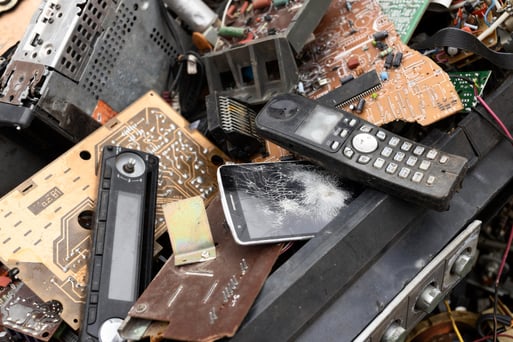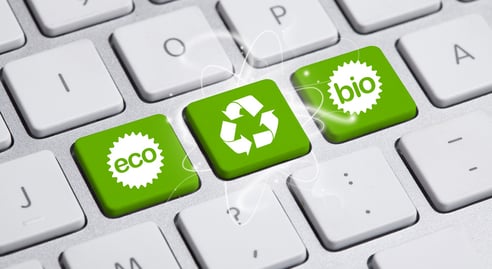
In today's technologically advanced business environment, the effective management of electronic waste, commonly known as e-waste, is a critical challenge for all enterprises. In various organizations, people continue to require assistance from devices, causing massive piles of discarded gadgets. If not disposed of correctly, these devices can threaten the environment.
However, companies should embrace this challenge by seeking different sustainable e-waste management strategies. Strategies that could cut the company's expenses include offering ideas such as recycling, upgrading, and proper hardware disposal.
Enterprises can enhance their sustainability efforts by implementing e-waste recycling programs, exploring equipment buyback options, and partnering with certified e-waste recyclers.
Overview Of The Impact Of E-Waste On The Environment
E-waste consists of hazardous elements, including lead, cadmium, and mercury, which dissolve into the water and soil if disposed of improperly. Such hazardous elements present a considerably higher risk to flora and fauna, the environment, and the wider ecosystem. Some enterprises need a proper attitude towards the disposal of electronic waste; they practically pollute their work surroundings with detrimental long-term consequences.
Just like National Car Parts encourages environmentally responsible vehicle dismantling and recycling, sustainable e-waste management practices focus on safely extracting and reusing valuable materials like gold, copper, and aluminium. This approach not only prevents harmful substances from entering the environment but also reduces the need to extract new resources, thereby lessening the environmental impact of production.
Electronic waste is a significant source of valuable materials like gold, copper, and aluminum, which can be recovered and reused through sustainable e-waste management practices. This reduces the need to extract new resources, thereby lessening the environmental impact of production.
Key Strategies For Sustainable E-Waste Management

Implementation Of E-Waste Recycling Programs
Implementing e-waste recycling programs is crucial for enterprises aiming to reduce their carbon footprint and environmental impact. These programs allow businesses to responsibly dispose of old electronics, including desktop computers and laptops, which can significantly reduce electronic waste.
By using refurbished laptops and desktops instead of new ones, companies can lower hardware expenses while extending the life cycle of devices. Additionally, recycling programs recover valuable materials like metals and plastics, reducing the need for new resources. Ultimately, adopting e-waste recycling benefits the environment, enhances the company's sustainability profile, and can lead to long-term cost savings.
Donating Or Reselling Obsolete Electronics
Only some outdated technologies prove useful. Numerous companies donate their older devices to nonprofits, schools, and enterprises in need. Businesses can resell their equipment, such as older laptops that they no longer require but are functional. In such a situation, refurbished technology is environmentally friendly and cost-effective. These practices can effectively minimize e-waste while offering better scope for extending the lifespan of electronics.
Designing An E-Waste Management Policy

A long-term solution that can help manage e-waste is developing an efficient policy on the management of e-waste for business startups. On recycling, this policy should state how the organization handles electronic devices that are no longer needed or wanted. It should also point out clear time frames for reviewing and renewing technologies to reduce the amount of e-waste produced.
Partnering With Responsible Manufacturers
Enterprises can support sustainability by purchasing electronics from manufacturers with strong environmental commitments. Many manufacturers offer take-back programs, allowing companies to return old devices when buying new ones. These programs ensure manufacturers are responsible for recycling or properly disposing of the returned equipment.
Emphasizing Device Longevity Through Regular Maintenance
Cleaning and servicing electrical appliances can greatly help their longevity, reducing the need for replacements. Updating software, repairing hardware, and cleaning as frequently as possible will help maintain business technology for an extended period, reducing e-waste.
Conclusion
E-waste poses a significant challenge in our increasingly technological world. However, by adopting responsible e-waste management practices, businesses can play a crucial role in mitigating this global issue. By taking proactive steps to reduce and manage e-waste, enterprises can contribute to a more sustainable future with efficient resource utilization.